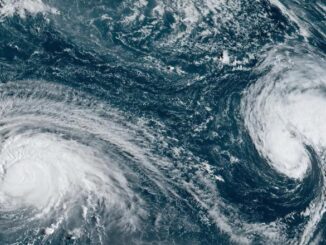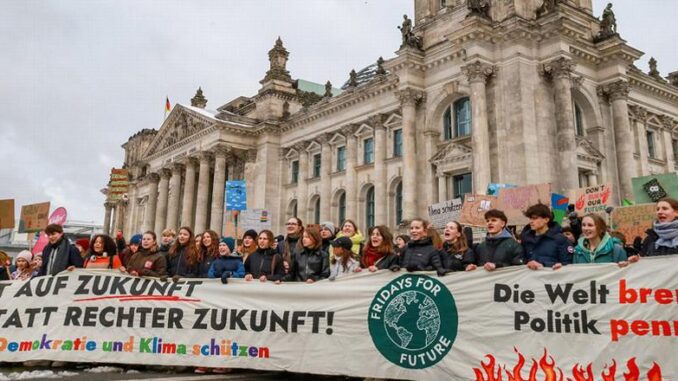
BERLIN, Germany, February 16, 2025 (ENS) – With new funding, Germany’s Environment Ministry, the nonprofit WWF Germany, and the international police force Interpol are joining forces to stop criminals making billions in profits every year by destroying nature. Germany’s Federal Environment Ministry is funding an integrated working team with Interpol and the World Wide Fund for Nature, WWF, to combat the devastating impacts of environmental crimes.
With a €5 million investment from the German government’s International Climate Initiative, IKI, the three-year project aims to identify and prevent transnational crimes impacting the climate, biodiversity and the environment across five key areas: fisheries crime, forestry crime, illegal mining, pollution crime, and wildlife crime.
Estimated to be the third most profitable form of criminal activity worldwide behind drug trafficking and counterfeit crimes, environmental crime generates hundreds of billions of dollars in illegal profits each year.
“Transboundary organized environmental crime exacerbates the triple planetary crisis of biodiversity loss, climate change and pollution,” German Environment Minister Steffi Lemke said. “So it is important to me to ensure that protecting the environment goes hand in hand with combating environmental crime.”
“Criminal organizations are causing massive damage to the natural foundations of our lives. For example, they kill and trade in critically endangered species, clear forests that provide key carbon reservoirs and habitats, and poison landscapes with illegally dumped waste, making them uninhabitable,” Minister Lemke explained. “By cooperating with Interpol and WWF, we will join forces and make a valuable contribution in the fight against transboundary environmental crime.”
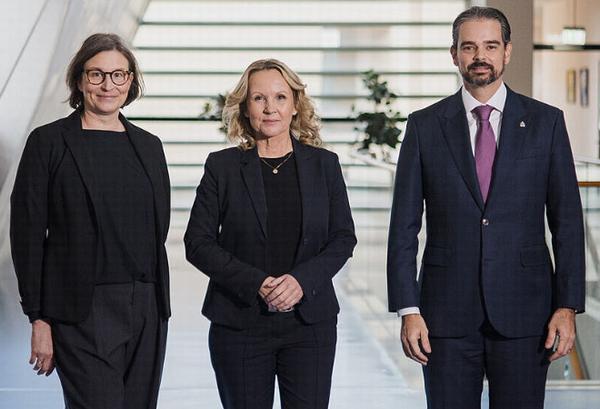
Interpol Secretary General Valdecy Urquiza said, “Environmental crimes threaten our planet, our daily lives and the future of generations to come. From illegal logging to hazardous waste dumping, there are no borders to environmental crimes, which are uniquely destructive, with long term consequences that extend far beyond the immediate damage. This joint project with Germany and WWF will help provide real support in developing capabilities, intelligence and ultimately, operational outcomes.”
Heike Vesper is chief executive for transformation and policies at WWF Germany. “Environmental crime is a phenomenon that has been greatly underestimated to date,” she explianed.
“Illegal deforestation, fishing and mining contribute significantly to global warming and species loss and therefore pose a massive threat to our human livelihoods. With this cooperation between the Federal Environment Ministry, Interpol and WWF, we are finally taking action against the activities of criminal groups, which all too often go unpunished,” Vesper declared.
“Destroying the environment and biodiversity for profit is not a trivial offence, but a serious crime with local and global consequences for people and nature,” Vesper said.
The term environmental crime covers a wide range of illegal activities that harm ecosystems, animals, plants and the climate.
One of the goals of the German-funded project with Interpol and WWF is to strengthen capacities and transnational cooperation between law enforcement agencies, and to protect civil society organizations when uncovering and prosecuting environmental crimes.
With Election Looming, Germans Demonstrate on Valentine’s Day
On the occasion of a huge climate strike across Germany on February 14, a broad civil society alliance called on everyone who forms the next federal government to take action.
A federal election will be held in Germany on February 23, 2025 to choose the 630 members of the 21st Bundestag. Originally scheduled for September 28, 2025, the elections were brought forward due to the collapse of the governing coalition during the November 2024 German government crisis.
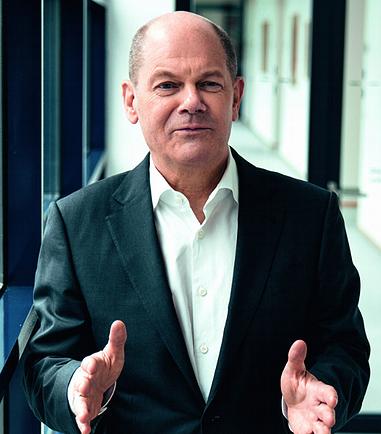
On November 6, 2024, Olaf Scholz, the incumbent chancellor of Germany and a member of the Social Democratic Party, announced the dismissal of Christian Lindner, the then-finance minister and leader of the Free Democratic Party, FDP, from his cabinet, following recent disputes in the three-party coalition government over the country’s economic policies and ongoing tensions within the coalition.
In response, the FDP moved into the opposition, and the governing coalition collapsed, leaving a two-party minority government of the Social Democratic Party and The Greens.
On December 16, 2024, Scholz called a vote of confidence in the ruling government, but lost. As a result, an early 2025 federal election is to be held on February 23.
On Friday, thousands of activists demonstrated in Germany to raise awareness of climate issues ahead of the federal elections. Protesters believe the climate crisis has been ignored in the upcoming German elections in favor of other issues, such as immigration and the economy.
In Frankfurt, demonstrators carried the figure of a kangaroo showing the continents and the inscription “Climate is not negotiable.” They ignited it during climate strike to demonstrate the danger.
The demonstration was organized by Fridays for Future, a global youth-led climate strike movement focused on promoting awareness to the climate crisis and fighting for change. Protesters held banners reading “Right on a future, instead of a right (wing) future.”
WWF Germany says the climate protests, announced in November 2024 on the group’s website and social media channels, topped the 100,000 participant mark in some 150 places across Germany.
“The climate crisis is already worsening, with devastating consequences for people and nature. The world is heading towards uncontrollable global warming,” WWF Germany warns, adding an urgent election warning.
“In the election campaign,” says WWF Germany, “key building blocks for climate protection are being questioned by many parties. We can only protect the climate if we continue to expand renewables in Germany, implement a mobility transition and achieve a real heat transition. We want to show how important ambitious climate protection and social justice are for people and their livelihoods and call for joint protests.”
The alliance includes Amnesty International, Attac, BUND, BUNDJugend, Campact, Deutsche Umwelthilfe, GermanZero, Greenpeace, NABU, NAJU, NaturFreunde Deutschlands, Naturfreundejugend Deutschlands, Together for Future, WWF and WWF Jugend as well as over 117 other organizations, associations and initiatives.
More than 137 demos and actions took place across Germany, with larger demonstrations in Berlin and Hamburg. [Article continues below]
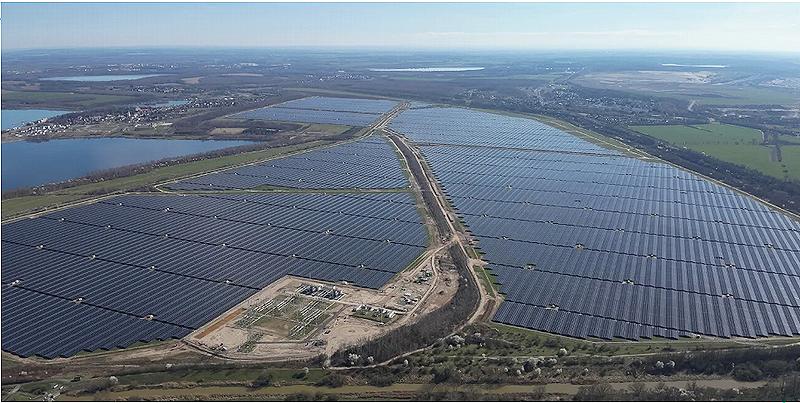
Seven MegaTrends Define Earth’s Climate Future
The new partnership of the German Environment Ministry, Interpol and WWF Germany will have mega-tasks ahead of it as it tries to conquer the serious issues that come with the seven Megatrends uncovered by WWF Germany as the country struggles to get its political affairs in order.
“At the heart of the Paris Agreement is the international community’s promise to itself to stop anthropogenic emissions, which continue to heat up the atmosphere regardless of where they occur, before the climate crisis turns into a global and irreversible climate catastrophe,” WWF Germany writes in its revised Megatrends report.
After more than six years of the Paris Agreement on climate, “new dynamics are emerging in the global energy transition,” the group has found. “The megatrends identified at that time have not disappeared, but they have become more pronounced, more specific and developed further since then. New megatrends can now also be observed.”
That is why WWF Germany has revisited its 2015 Megatrends report and given it a comprehensive update to show the now seven megatrends of the global energy transition.
The updated report shows that the challenges of transforming the global energy system have grown in the past 10 years. Time is running out to minimize global warming. The report shows that the energy transition must be implemented quickly and ambitiously now so that the climate targets can still be met – worldwide.
“The burning of fossil fuels such as coal, oil and natural gas must stop now and make way for new, climate-friendly energy technologies. Wind and solar energy have established themselves – at least for today’s foreseeable future and in more and more regions of the world – as the best solutions, both economically and ecologically,” WWF Germany maintains.
Seven Energy MegaTrends as Detailed by WWF Germany
- – Megatrend 1: The end of the fossil era is inevitable: The phase-out of coal, oil and natural gas remains unavoidable for achieving global climate protection goals – contrary to the final declaration of the 26th World Climate Conference in Glasgow, which merely calls for a reduction (“phase-down”) in the use of coal.
- – Megatrend 2: The energy future is present – almost everywhere: Renewables already dominate the expansion of new power generation capacity. Between 2014 and 2020, the installed wind energy capacity worldwide doubled, and that of photovoltaics almost quadrupled. More than 80 percent of the newly installed generation capacity worldwide in 2020 was renewable. In 2020, 70 percent of new investments went into plants for generating electricity from renewable energies. Fossil and nuclear power plants are far behind.
- – Megatrend 3: The energy future is renewable – and irreversible: Falling costs for wind and solar power as well as the rising cost of fossil fuels are making renewables key global technologies for the 21st century.
- – Megatrend 4: The energy future is decentralized, opens up opportunities for a fairer world: Germany and the Global North are called upon, not least because of their historical responsibility for the climate crisis, to technologically advance and financially secure this system and technology transfer as well as the development of the energy systems of the future in the Global South.
- – Megatrend 5: The energy transition is electric: The decarbonization of the transport sector, the heating sector and industry is achieved through the direct or indirect use of electricity generated from renewable sources. The switch from fossil or nuclear energy to renewable energies and green electricity also results in a profound technological change for the affected industries on the user side. Electricity is the main final energy source of the future.
- – Megatrend 6: Energy transition needs hydrogen – for special tasks: As with the expansion of renewable energies, speed is the decisive criterion when creating the infrastructure for an adequate supply of green hydrogen. Smart government support, control and prioritization are key prerequisites for success.
- – Megatrend 7: No energy transition and no decarbonization without digitalization: In Germany, the short-term goal is to systemically link the still largely separate spheres of digital transformation and decarbonization in the energy, industry, transport, building heating and agriculture sectors.
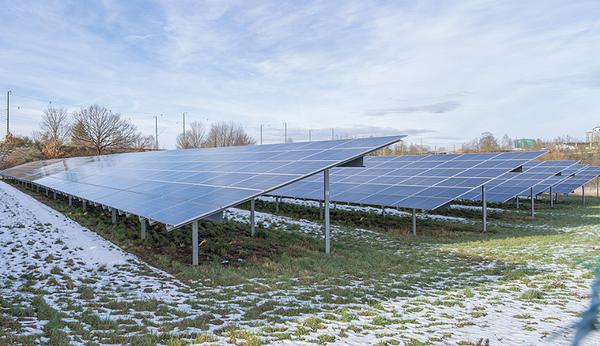
WWF Germany concludes, “To achieve this, energy must first be used more efficiently all over the world and a less resource-intensive way of life must emerge, especially among the global middle and upper classes. But this alone will not be enough. If more than 9.5 billion people want to live in dignity on Earth in 2050, a fundamental transformation of the energy supply within less than a generation is a necessary condition.
This conclusion is based on a report from the United Nations Department of Economic and Social Affairs, “World Population Prospects 2019.”
To read the full WWF Germany MegaTrends report, “Megatrends of the Global Energy Transition: A Summary,” click here.
The primary goal of Germany’s IKI project with Interpol and WWF is to strengthen capacities and transboundary cooperation between law enforcement agencies, and to protect civil society organizations when uncovering and prosecuting environmental crimes with major impacts on the environment, climate and nature.
The International Climate Initiative, or IKI, is one of the German government’s main funding programs in the field of international climate action and biodiversity conservation. Germany has been supporting IKI projects in these areas in developing countries and emerging economies since 2008.
The initiative plays a key role in implementing the UN Framework Convention on Climate Change and the Convention on Biological Diversity.
Featured image: Protesters hold a banner that reads, from left, “Right to the Future, Instead of a Right (wing) Future, Protect Democracy and the Climate,” and on the right side, “The world is burning, politics sleeps.” They are demonstrating in front of a government building, Frankfurt, Germany, February 14, 2025. (Photo courtesy Fridays for Future Germany via X)
© 2025, Environment News Service. All rights reserved. Content may be quoted only with proper attribution and a direct link to the original article. Full reproduction is prohibited.


